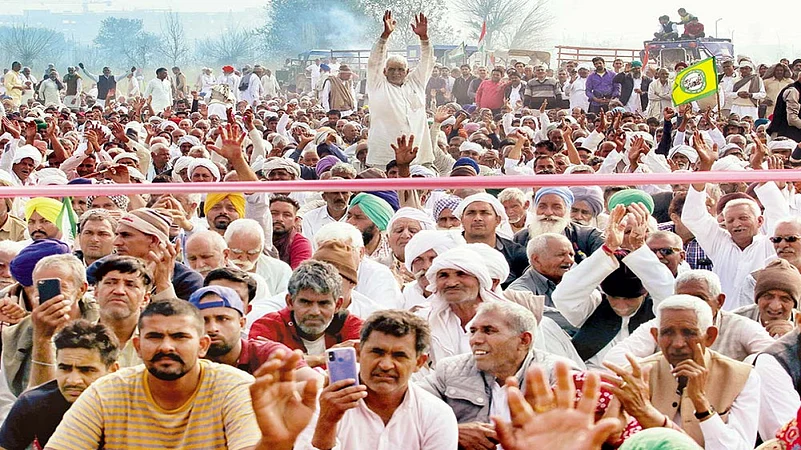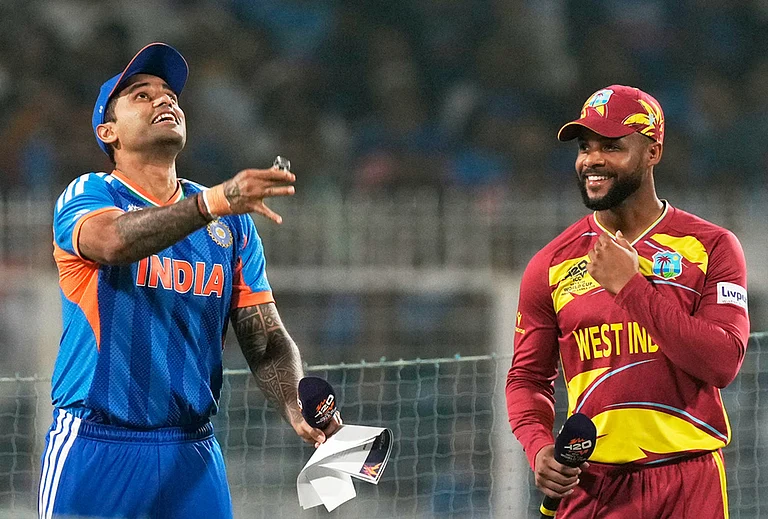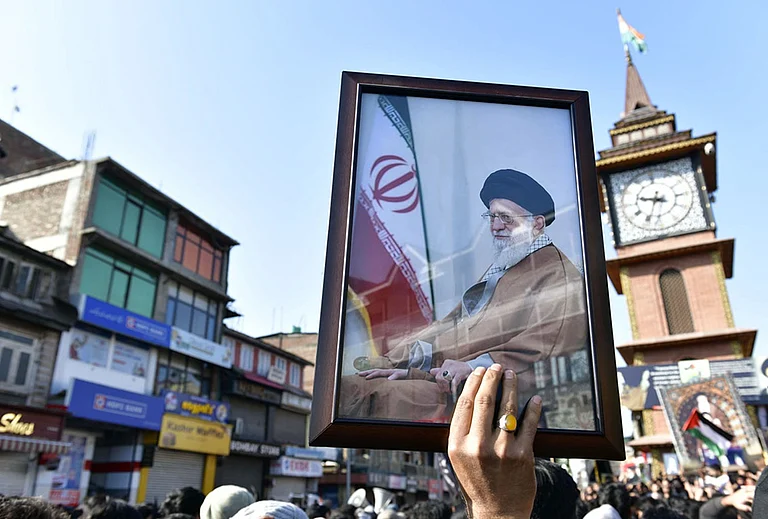What BKS Wants
- All procurement under MSP, whether in APMC (mandis) or outside
- Setting up of agriculture tribunals for resolution of farmers’ disputes in their hometowns
- Registration of ‘arhtiyas’ (agents/traders) on a government portal that can be accessed by all
- Payments to farmers within stipulated time through bank guarantee
- Prices of inputs should be controlled
- When considering quality of produce, unexpected incidents like natural calamities have to be considered
***
The Bharatiya Kisan Sangh (BKS) has chosen to stand alone. This Rashtriya Swayamsevak Sangh (RSS)-affiliated farmers’ union is seeking some amendments in the contentious farm laws brought by the Narendra Modi-led National Democratic Alliance (NDA) government. Yet, the organisation has refused to join farmers protesting at Delhi’s borders. BKS leaders claim it is for the benefit of peasants and their struggle is to get farmers what they deserve.
The BKS wants a law to be enacted so that minimum support price (MSP) can be legalised and special agricultural courts be set up for grievances to be addressed. The union’s top leaders recently held several meetings in Uttar Pradesh—a state ruled by the Bharatiya Janata Party (BJP)—and they are not happy with the plight of farmers there. “Farmers in UP are upset at FRP (fair and remunerative price) and SAP (state advised price) not being increased in the last few years. Electricity rates are high, and farmers are being overcharged (indicating errors in bills),” says BKS organising secretary Dinesh Dattatraya Kulkarni. “Farmers are not getting their due.”
The BKS sees a slip in the Centre’s claim of increased procurement of Kharif crop under MSP this season. Expressing dissatisfaction, its leaders point out that the issue is not about increased procurement or about the amount spent in purchase under MSP. What matters is how many farmers are getting this benefit. The BKS reacted sharply when Union minister Piyush Goel posted details of benefits being offered under MSP. “We have worked out the percentage. It comes to merely 6.25 per cent of farmers,” Kulkarni says. “Do brother-farmers in Assam, Odisha, West Bengal, get anything?”
The BKS has been critical of several policies earlier too. BKS founder, the late Dattopant Bapurao Thengadi, chose to criticise the then A.B. Vajpayee-led government for its “anti-farmer” and “anti-labour” policies. In 2003, he refused to accept the Padma Bhushan on the ground that there were more deserving candidates. The decision was, however, perceived as a move to distance himself from the government that he chose to oppose.
The RSS ideologue had founded BKS at Kota in Rajasthan on March 4, 1979. He was also a founding member of the Akhil Bharatiya Vidyarthi Parishad (student wing) in 1949, and established the Bharatiya Majdoor Sangh (trade union) in 1955. Thengadi has also been a Rajya Sabha member for two consecutive terms (1964-1976) from the Bharatiya Jana Sangh—the precursor of the BJP.
The RSS-affiliated farmer union has launched a ‘Jan Jagran’ programme in villages since January 26 to “spread awareness” regarding the new farm laws and their demands. “Farmers, and the country, are most important. If any policy or decision is to their benefit, we’ll support it. It does not matter if it’s a BJP or Congress or any other party-led government that is at helm,” says Kulkarni, “and if it goes against their interests, we’ll contest— forcefully, but peacefully.”
However, despite its criticisms of the government, the BKS has not been able to offer much resistance, leading to accusations that it is trying to run with the hare while hunting with the hounds. But its leaders proudly claim that their apolitical nature allows them to fight for farmers’ interests without any other aim or gain. “There shouldn’t be a blanket support, nor absolute opposition. There shouldn’t be a logjam. Thus, a dialogue is necessary to obtain what’s required for farmers’ benefit,” Kulkarni adds.

























